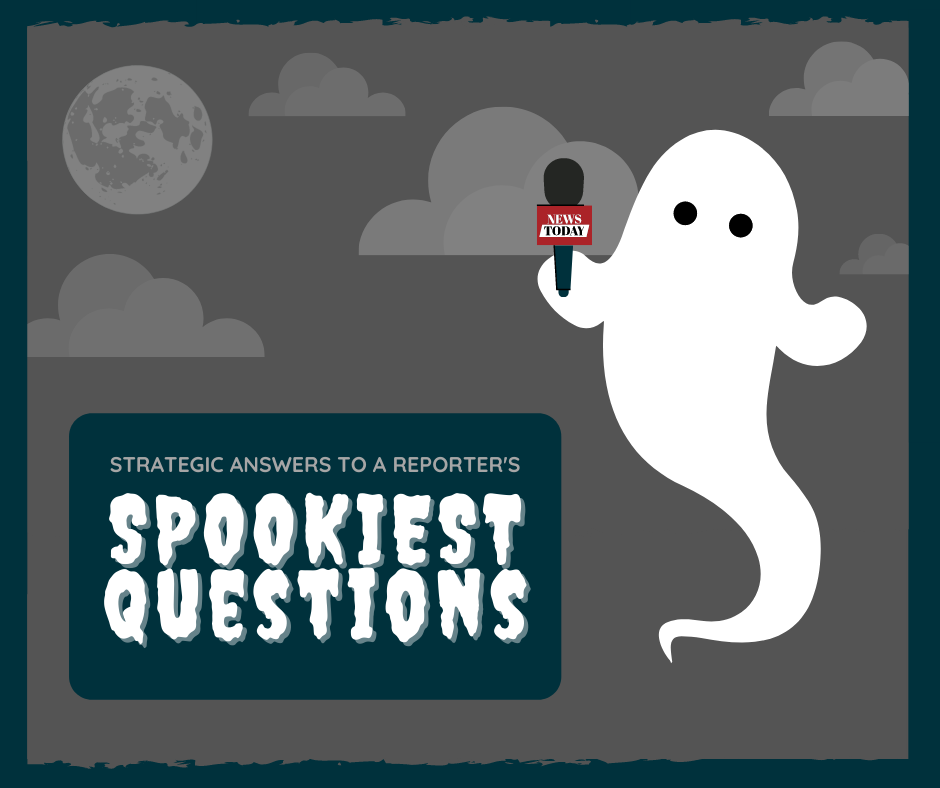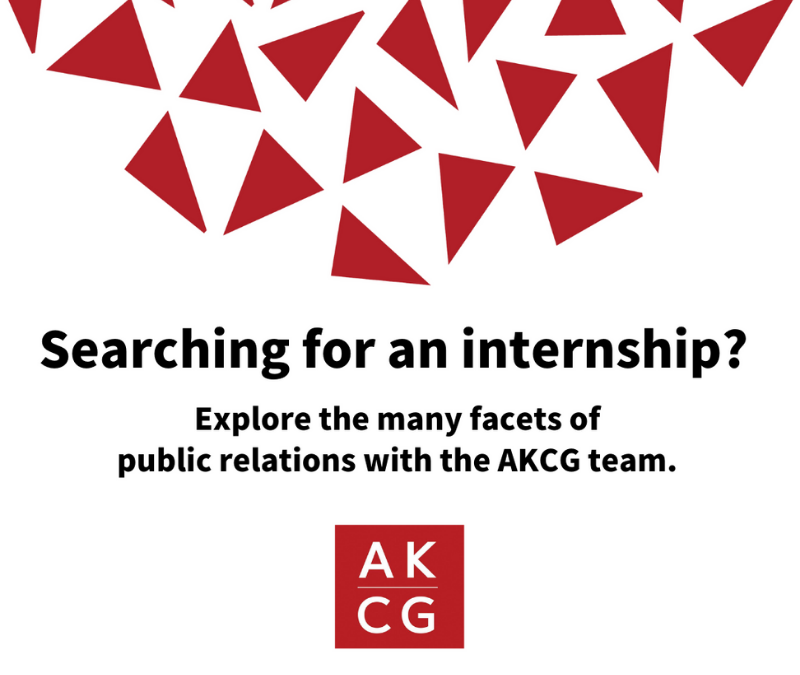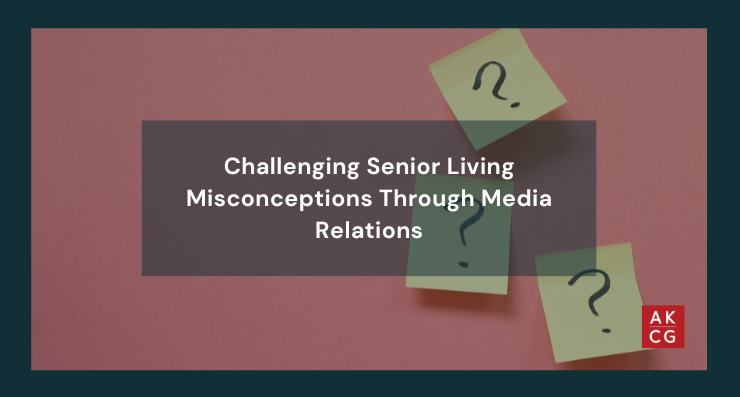Believe it or not, we’ve only recently entered the spookiest time of the year. From COVID-19, to a social justice reckoning, to the presidential election, this fall continues the year’s trend of being riddled with hot-button issues. It should come as no surprise that difficult years can lead to difficult media inquiries, and ultimately, to tricky interviews.
For those of us who may one day find ourselves in front of a journalist’s camera, few things are more frightening than watching a spokesperson stumble through an interview. After all, we’ve all witnessed an interview or two that have made the role of being a spokesperson just about as appealing as [insert your least favorite Halloween candy here].
In most cases, though, reporters don’t have sinister intentions. While your job is to communicate on behalf of your organization in a manner that protects your reputation, their job is to provide their audience with a compelling and informative story. Of course, in their efforts to collect details to fill in the blanks of their piece, they may ask you some nerve-wracking questions.
Below are the spookiest types of questions a reporter may ask you along with some tricks for providing a satisfying response.
1. Questions that ask you to speculate
Hypotheticals are great for crisis scenario planning but can be dangerous during interviews. Responding to a hypothetical scenario with nothing but speculation isn’t helpful to anyone and will likely only spark rumors within your community. If you choose to answer a hypothetical question as-is, you may find yourself quickly falling down a rabbit hole as you fumble trying to come up with a satisfying response. Instead of falling for this trick, do your best to bridge the conversation back to reality and stick to your key messages.
2. Questions that ask you to divulge private or confidential information
There are many reasons why a reporter may ask you to share sensitive information, but there’s also a reason for privacy laws and why most, if not all, organizations have policies in place to protect their consumer’s private and confidential information. If you want to maintain trust with those you serve, do not violate these policies. When accompanied by a reference or two about the specific matter at hand, a response as simple as “As a matter of policy, we cannot provide additional information” can usually do the trick. In the event of a tragic accident or issue where law enforcement or other officials are involved, leave it to them to choose to provide those more-specific details.
3. Questions you don’t know the answer to
Let’s say you’re the media contact at an independent school and, earlier today, there was a fire on campus. The fire department is on scene currently investigating when a reporter from the local paper asks how it started. When you’re asked a question you don’t know the answer to, it’s okay to say so. Especially during an issue, you won’t know everything, and more importantly, you shouldn’t feel obligated to wing it. If the information is just not yet available, you can let the reporter know you will update them as soon as possible. On the other hand, if the question is completely out of your area of expertise, instead of guessing the answer, you can offer to have someone more suitable contact the reporter.
4. Questions they already asked you
Does a question feel eerily familiar? No, this isn’t déjà vu, but this may be a sign you’re staying goal-oriented in the interview. A reporter will often ask repeat questions to see if you might share more or different information than you did the first time around. Instead of saying “I already answered that,” or worse—revealing unverified or privileged information—be comfortable with repeating yourself and stick to your talking points.
We can all agree that we don’t need Halloween this year to experience some eerie moments, and media interviews shouldn’t be yet another thing to worry about. At AKCG, we know that no questions are off-limits for journalists. Through spokesperson training, key members of your organization’s leadership team can become more comfortable with speaking to reporters. By practicing responses with exercises that incorporate those tough questions, you can learn not only how you react instinctively, but also how to navigate interviews with confidence to deliver the messages you want to share with your audiences.
Keep in mind, an organization with well-trained spokespersons is like the house in your neighborhood that gives out full-size candy bars on trick-or-treat night: it’s going to stand out and rise above the competition.
To learn more about AKCG’s spokesperson training, please click here.





